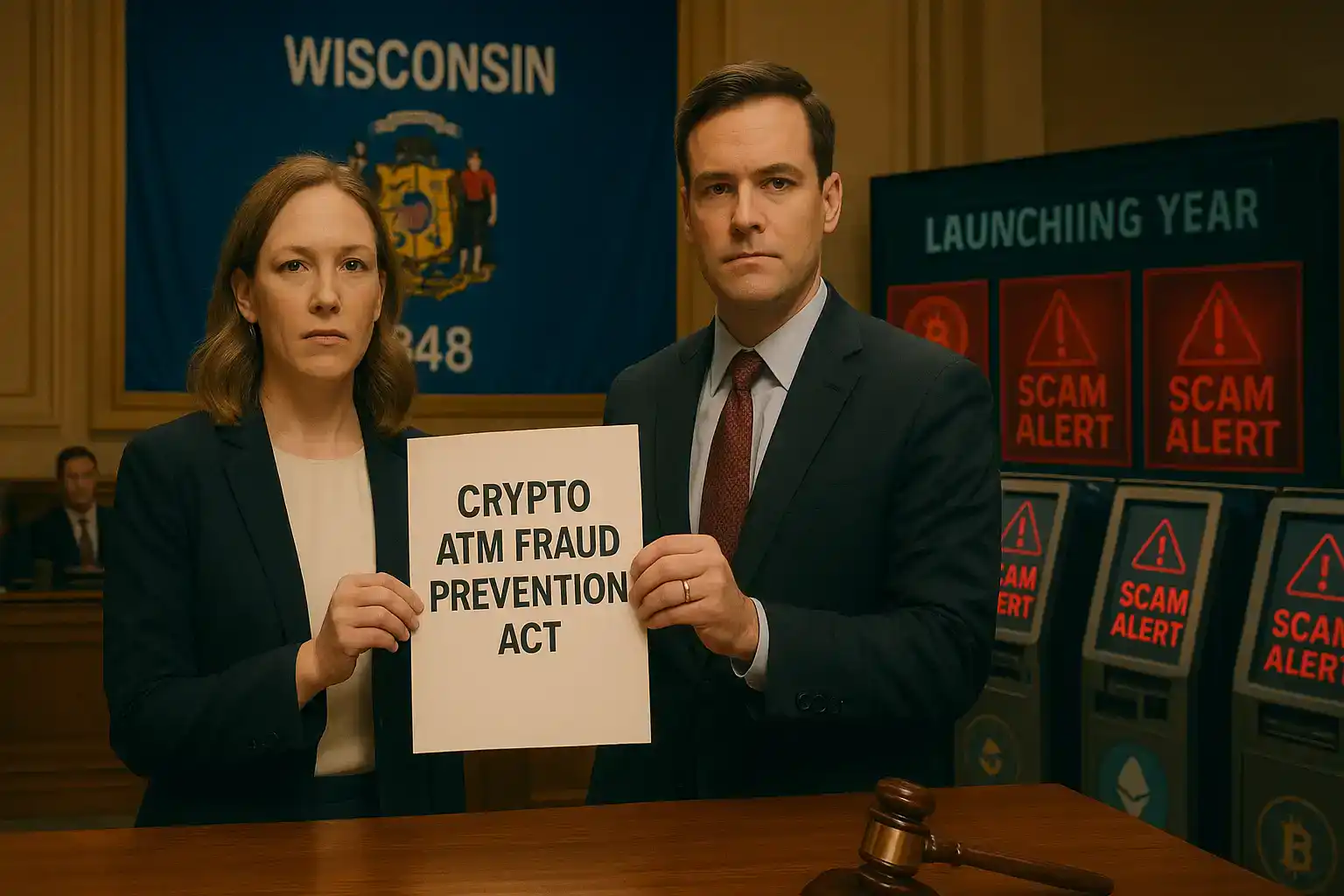Wisconsin Moves Toward Strict Crypto ATM Regulation
Wisconsin lawmakers are pushing for some of the toughest rules in the country focused on cryptocurrency ATMs to counter rising fraud cases associated with them.
State Senator Kelda Roys and six other Democrats filed Senate Bill 386 as an exact companion of Assembly Bill 384, filed by Democrat Representative Ryan Spaude. Filing the same bill in both chambers is a fast-tracker for further legislation and gives the legislation a good shot at passing.
If the bill gets approved, crypto ATM — or crypto kiosk — operators would have to follow strict licensing, verification, and consumer protection requirements.
Stricter Rules for Every Transaction
Operators would be required to obtain a money transmitter license in order to operate machines in Wisconsin under the new laws. Moreover, they would have to gather detailed personal information from each user, including:
- Full name
- Date of birth
- Government photo identification, like a driver’s license
- Residential address
- Email address
- A customer photo taken at the time of the transaction
Verification would be required for every single transaction, not just once. The legislation also suggests a cap of $1,000 per day per user.
Warning Labels, Fee Caps, and Scam Victim Refunds
The law would mandate clear warning signs placed directly in front of customers at each machine to alert them to the risk of fraud.
Charges, often criticized as expensive compared to cryptocurrency exchanges, would now be limited to $5 or 3% of the transaction, whichever is greater.
A key feature of the measures is that operators would have to fully reimburse customers if law enforcement confirms that a transaction was fraudulent within 30 days — including payments made to scammers.
Federal and Global Pressure on Crypto ATMs
Wisconsin’s proposed crackdown mirrors efforts by regulators worldwide. On August 4, the U.S. Treasury Department’s Financial Crimes Enforcement Network (FinCEN) issued an alert on the rise of crypto ATM-related scams, urging financial institutions to file a Suspicious Activity Report.
According to FinCEN Director Andrea Gacki, criminals use these kiosks for fraud, cybercrime, and drug trafficking — often targeting the elderly and impersonating bank officials, tech support agents, and customer service representatives.
Global Crackdowns Include:
- New Zealand — Completely banned crypto ATMs in July over money laundering concerns.
- United Kingdom — Shut down machines and made arrests for illegal activity.
- Grosse Pointe Farms, Michigan — Enacted a ban despite not having a single crypto ATM.
Potential National Model for Regulation
If approved, Wisconsin’s twin bills could serve as a national model for stricter regulation of the crypto kiosk industry. It may also inspire broader legislative crackdowns on fraudulent activities in the digital currency space.



























